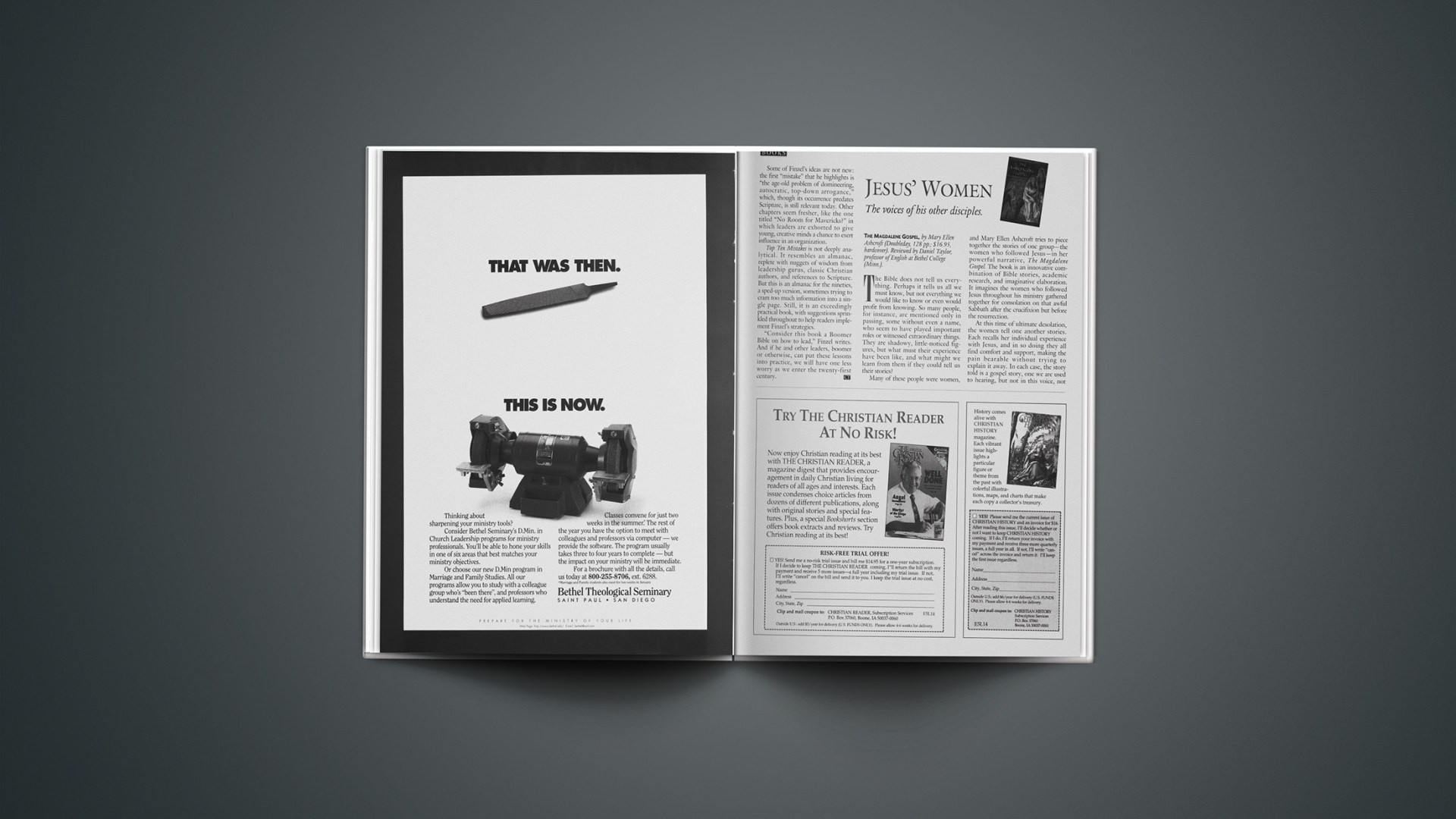The Magdalene Gospel, by Mary Ellen Ashcroft (Doubleday, 128 pp.; $16.95, hardcover).
The Bible does not tell us everything. Perhaps it tells us all we must know, but not everything we would like to know or even would profit from knowing. So many people, for instance, are mentioned only in passing, some without even a name, who seem to have played important roles or witnessed extraordinary things. They are shadowy, little-noticed figures, but what must their experience have been like, and what might we learn from them if they could tell us their stories?
Many of these people were women, and Mary Ellen Ashcroft tries to piece together the stories of one group—the women who followed Jesus—in her powerful narrative, “The Magdalene Gospel.” The book is an innovative combination of Bible stories, academic research, and imaginative elaboration. It imagines the women who followed Jesus throughout his ministry gathered together for consolation on that awful Sabbath after the crucifixion but before the resurrection.
At this time of ultimate desolation, the women tell one another stories. Each recalls her individual experience with Jesus, and in so doing they all find comfort and support, making the pain bearable without trying to explain it away. In each case, the story told is a gospel story, one we are used to hearing, but not in this voice, not from this point of view.
And therein lies the appeal and importance of “The Magdalene Gospel.” It shows the highest respect for the historicity and authority of the biblical stories, but it tells them from a fresh perspective and thereby allows us to see the overly familiar with new eyes and new faith.
Everyone knows, for instance, the story of Martha fuming in the kitchen while Mary sits and listens to Jesus. But Ashcroft makes us see it afresh and understand the Martha in many of us. The narrator observes that Jesus “understood the pressures women feel to perform” and how “judgments made on their cooking, housekeeping, and entertaining, seem somehow like a judgment of their souls.”
Martha prides herself on meeting other people’s needs in a way that reflects well on her, but she is increasingly aware that such approval is only as enduring as the last meal. Jesus’ affirmation of Mary putting discipleship before performance frees Martha: “The world would go on if we had a simple meal. And I would learn to survive without compliments to feed me, without frantic efforts to prove myself. … I could just be, in the presence of the teacher.”
“The Magdalene Gospel” is a feminist book in the best tradition of orthodox Christian feminism. It will therefore offend people at the extremes. It reminds us too often and too pointedly of the religious establishment’s mistreatment of women to please some conservatives. And it affirms the centrality of a divine, miracle-working Christ and his good news for women too unreservedly to please some liberals.
Not least important, this story is skillfully and gracefully written. Ashcroft respects words, but also silences—things said well, and things better left unsaid, or only suggested. In “The Magdalene Gospel” she uses her considerable skill to remind us above all of the love of Christ that is at the center of the gospel stories.
Daniel Taylor is the professor of English at Bethel College in Minnesota.
Copyright © 1995 Christianity Today. Click for reprint information.










